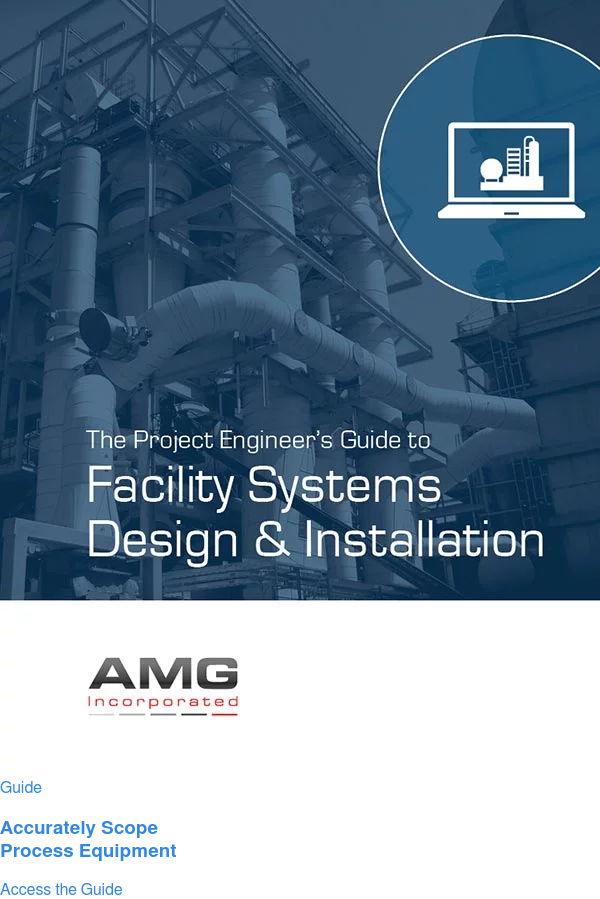
Below are some of the most common and important engineering terms and definitions.
3-D Digital Modeling - A 3-D model effectively demonstrates most aspects of a project or the impact of changes in immediate, easily understood images.
Biotechnology - A field of applied biology that involves the use of living organisms and bioprocesses in engineering, technology, medicine and other fields requiring bioproducts.
Chemical Engineering - A branch of engineering that deals with the application of physical science and life sciences with mathematics and economics, to the process of converting raw materials or chemicals into more useful or valuable forms.
Civil Engineering - A professional engineering discipline that deals with the design, construction, and maintenance of the physical and naturally built environment, including works like bridges, roads, canals, dams, and buildings.
Code Compliance - Follow standard area codes.
Commissioning & Start-Up - Commissioning and start-up is the final step before production runs in a processing plant.
Detailed Engineering - Detailed engineering encompasses the design and configuration of various engineering systems that form the internal workings of a facility.
Electrical Engineering - A field of engineering that generally deals with the study and application of electricity.
Engineering - The discipline, art, skill and profession of acquiring and applying scientific, mathematical, economic, social, and practical knowledge to design and build structures, machines, devices, systems, materials and processes that safely realize improvements to the lives of people.
Environmental Permit Application Assistance - Secure local, regional, state, and/or federal permits.
Expediting - A concept in purchasing and project management for securing the quality and timely delivery of goods and components.
Facility Upgrades & Retrofits - Updating a facility and/or fitting new equipment into an established space can present unique challenges.
Feasibility Studies - Feasibility studies are used to systemically examine and evaluate the project, identifying the most appropriate methods and techniques, environmental concerns, infrastructure needs, and potential pitfalls of the proposed project.
Hydromilling - A unique set of technologies and processes that provides ethanol plants with an additional revenue stream and the ability to make more ethanol for less.
Industrial Engineering - A branch of engineering dealing with the optimization of complex processes or systems. It is concerned with the development, improvement, implementation and evaluation of integrated systems of people, money, knowledge, information, equipment, energy, materials, analysis and synthesis, as well as the mathematical, physical and social sciences together with the principles and methods of engineering design to specify, predict, and evaluate the results to be obtained from such systems or processes. Its underlying concepts overlap considerably with certain business-oriented disciplines such as Operations Management, but the engineering side tends to emphasize extensive mathematical proficiency and usage of quantitative methods.
Instrumentation Engineering - The art and science of measurement and control.
Intelligent Process & Instrumentation Diagrams (P&IDs) - Intelligent process & instrumentation diagrams (P&IDs) are graphical representations backed by a database containing all project management data. This pairing of sophisticated electronic tools allows useful organization and timely retrieval of process and facility data.
Mechanical Engineering - a discipline of engineering that applies the principles of physics and materials science for analysis, design, manufacturing, and maintenance of mechanical systems.
Palletizing - To place on, transport, or store by means of pallets.
PET Container - PET containers are used for water, carbonated beverages, juices, and more.
Piping Engineering Design - The engineering discipline of piping design studies and the efficient transport of fluid.
Pneumatic Conveying - To convert ordinary hose, tube or pipe into a powerful conveying system. These vacuum conveying units use a small amount of compressed air to produce a suction that moves large volumes of bulk materials over long distances.
Structural Engineering - A field of engineering dealing with the analysis and design of structures that support or resist loads.


